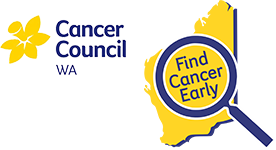Bush deaths higher in Kalgoorlie.
The fact is, the earlier cancer is found, the better your treatment outcomes are, so it’s crucial you know what to look out for and see your doctor when something is not right.
This article was written by Joanna Delalande and published in the Kalgoorlie Miner on 24 May 2018.
Regional West Australians are 20-30 per cent more likely to die within five years of a cancer diagnosis than those living in Perth, according to the Cancer Council.
A 2017 report by the organisation found cancer patients in the bush were more likely to die than those living in the city.
Breast cancer mortality rates in particular were higher in inner and outer regional areas (25 per 100,000) compared to major cities (23 per 100,000) despite lower incidence.
This comes after a University of WA study earlier this month revealed cancer patients in rural WA had to fork out thousands of dollars in out-of-pocket expenses during their treatment.
Cancer Council WA education and research services manager Cassandra Clayforth told the Kalgoorlie Miner the disparity in cancer outcomes was believed to be partly due to a poor understanding of cancer symptoms and the fact country people often delayed going to the doctor, not receiving diagnosis or treatment early enough.
“Our Find Cancer Early campaign is designed to explain the symptoms of the five most common cancers — bowel, lung, prostate, breast and skin cancer — to over-40s in country WA to address this disparity,” she said.
“This is a big issue for regional Australians. Your cancer outcomes should not be determined by your postcode.
“It’s vital we get the message out to regional West Australians to be aware of the cancer symptoms to look out for, and to not put off seeing their doctor if they notice any changes in their body.”
Ms Clayforth said education and early detection were key to addressing the issue.
“The fact is, the earlier cancer is found, the better your treatment outcomes are, so it’s crucial you know what to look out for and see your doctor when something is not right,” she said.
“If you’re over 40 and experience any of the following for more than four weeks — new or changed spots on your skin, trouble peeing, diarrhoea, unexplained weight loss, any unusual pain, lumps or swelling, a persistent cough, or breathlessness — get it checked out.
“Even more importantly, if you ever have blood in urine or faeces, or cough up blood, it’s especially essential that you don’t ignore it — see your doctor straight away.”
Visit the West Australian website
Photo credit: Noah Buscher
